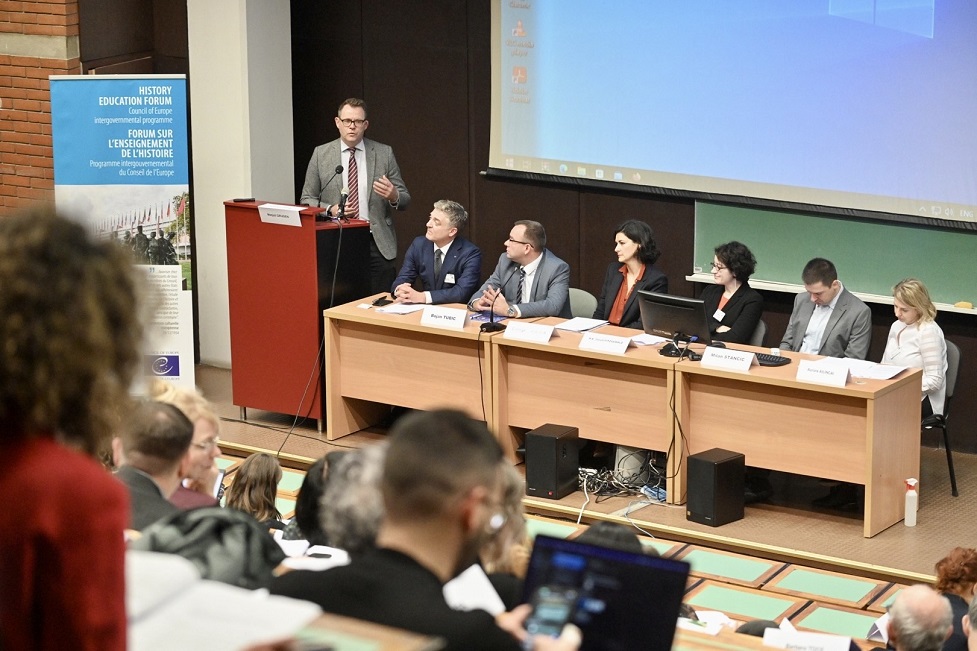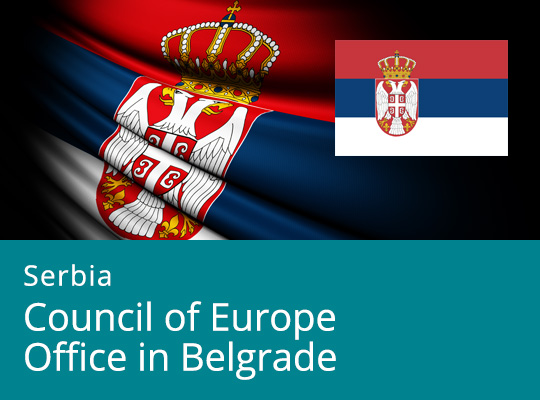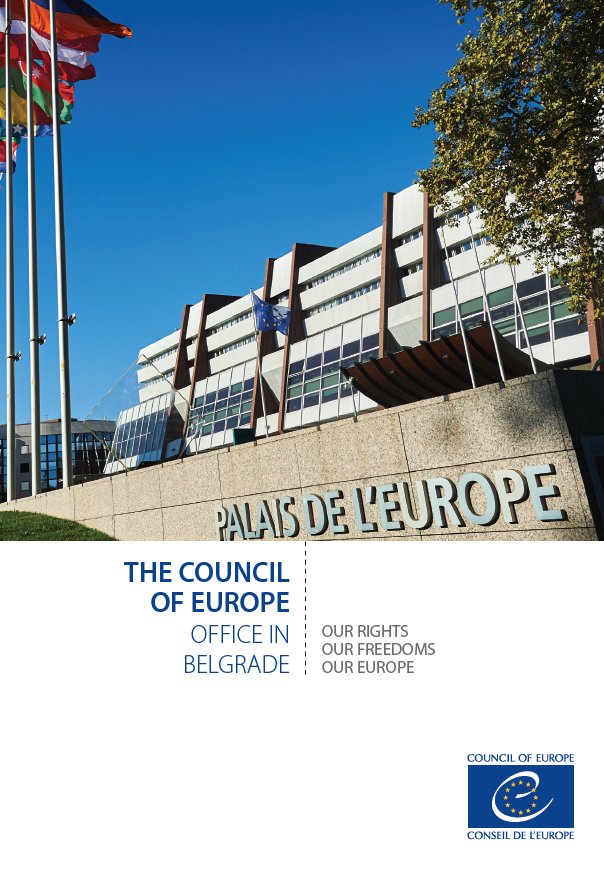Since its very beginning, the Council of Europe recognised the importance of history as a basis for the education of the citizens of Europe and its role in bridging differences and bringing people together. In times when history faces distortion, denial of some historical facts and political misuse of the past, it is crucial to offer spaces for open discussion on the role of history in the XXI century.
This was highlighted during the first day of the First annual Forum for History Education “Sites of Memories: Learning spaces for democracy” held in Belgrade today.
Tobias Flessenkemper, the Head of the Council of Europe Office in Belgrade welcomed the participants and underlined that Belgrade is one of the European cities where history can be felt at almost every corner. “From the Roman times, the Middle Ages, the Ottoman times, the horrors of the World Wars and Nazi crimes, to the controversies of our times, the city is full of important historical, cultural material and landscape heritage. Belgrade is hence an excellent choice for holding this First Annual Forum on History Teaching. The Council of Europe co-operation activities in Serbia will be supporting partners in education, academia, government and civil society to make good use of the results of the Forum”, said Flessenkemper.

“Understanding the importance of democracy requires remembrance and a critical understanding of history. They tell you what happened - and what may happen - when there is no democracy, no human rights, no respect for human dignity of others”, said Matjaž Gruden, Director of Democratic participation at the Council of Europe.
The annual Forum for History Education offered a space in which public authorities, teachers, curriculum developers, academics and other participants could share their views and their practices about history education aiming to develop recommendations for improving History Education.
On this occasion, prof. PhD Bojan Tubić, Assistant Minister, Sector for higher education at the Ministry of Education the Republic of Serbia stated that the knowledge of history and concepts related to historical events are very important for the development, among other things, of the democratic culture of our youth. Having that in mind, he said that in Serbia, the concept of teaching and learning programs is focused on outcomes. “For example, history is studied as a compulsory subject in primary, general secondary and secondary vocational education and training. Specialized high school classes for students with special abilities for geography and history were also introduced in 2008. And students have the opportunity to study history as an elective program”. Also as an important topic to mention, the Holocaust is studied as part of the History subject in the eighth grade of elementary school, the third or fourth grade of high school, and the corresponding classes of vocational schools.
Aurora Ailincai, the Executive Director of the Observatory on History Teaching in Europe (OHTE) said: “While the Observatory’s reports at this stage focus on history teaching in schools, we also recognise the importance that memorial sites have regarding the development of historical consciousness of learners beyond the classroom and with it, the great responsibility they bear for strengthening citizens’ appreciation for democracy and human rights. The Observatory`s reports will explore to what extents and in what ways visits of memorial sites are in fact included in the history teaching in the schools of the OHTE member States.”
Milan Stančić, Vice-dean for International Co-operation at the Faculty of Philosophy, which hosted the First annual Forum for History Education, expressed great pleasure that this institution has an opportunity to organise such conference in co-operation with the Council of Europe. “The Faculty of Philosophy in Belgrade has long been recognised by the public as a place where freedom of thought is nurtured, critical discussions are held on current social issues, new ideas are developed, and various civic initiatives are launched. Therefore, the key idea of the Forum is to open a space for dialogue about the importance and role of history in the modern environment, and especially about the pedagogical potential of historically important locations”, said Stančić.
The Forum has gathered 70 participants from all over Europe, who have an opportunity to explore the role of historical sites as education tools that foster the development of competences for democratic culture.
Plamena Halacheva, Deputy Head of the EU Delegation to Serbia said that “Times as such where we’re sadly witnessing war on our continent and continuous attacks on democracy require more than ever to invest in history education, but not to perpetuate existing narratives about good vs. bad, victim vs. perpetrator, right and wrong side of history, but one which offers insight into the complexities and diversity of historical interpretations; fosters the ability to question opposite and even conflicting narratives; forces us to leave behind the comfort of a single historical truth; and empowers historical thinking and multi-perspectivity.”
The participants of the conference will have the opportunity to explore sites of memories in Belgrade through four routes: the Belgrade Fortress, the Old Fair Ground, the Ottomans and Jews in heritages and controversial history and monuments.
On behalf of the Irish Presidency of the Council of Europe Committee of Ministers, H.E. Iseult Fitzgerald, Ambassador of Ireland to Serbia, said: “Europe has a great history, but also a turbulent one, and every single country has difficult, controversial, and sometimes tragic moments to look back on – including my own country, Ireland, which marks 100 years of independence this year. Remembering is not always the same as celebrating, and it is essential that we are able to reflect, remember and learn lessons from the past, without bringing bitterness into the present.”
The organisation of the Forum is supported by the joint European Union and the Council of Europe action “Quality education for all”.
Publication: Quality history education in the 21st century (in English and in Serbian)






